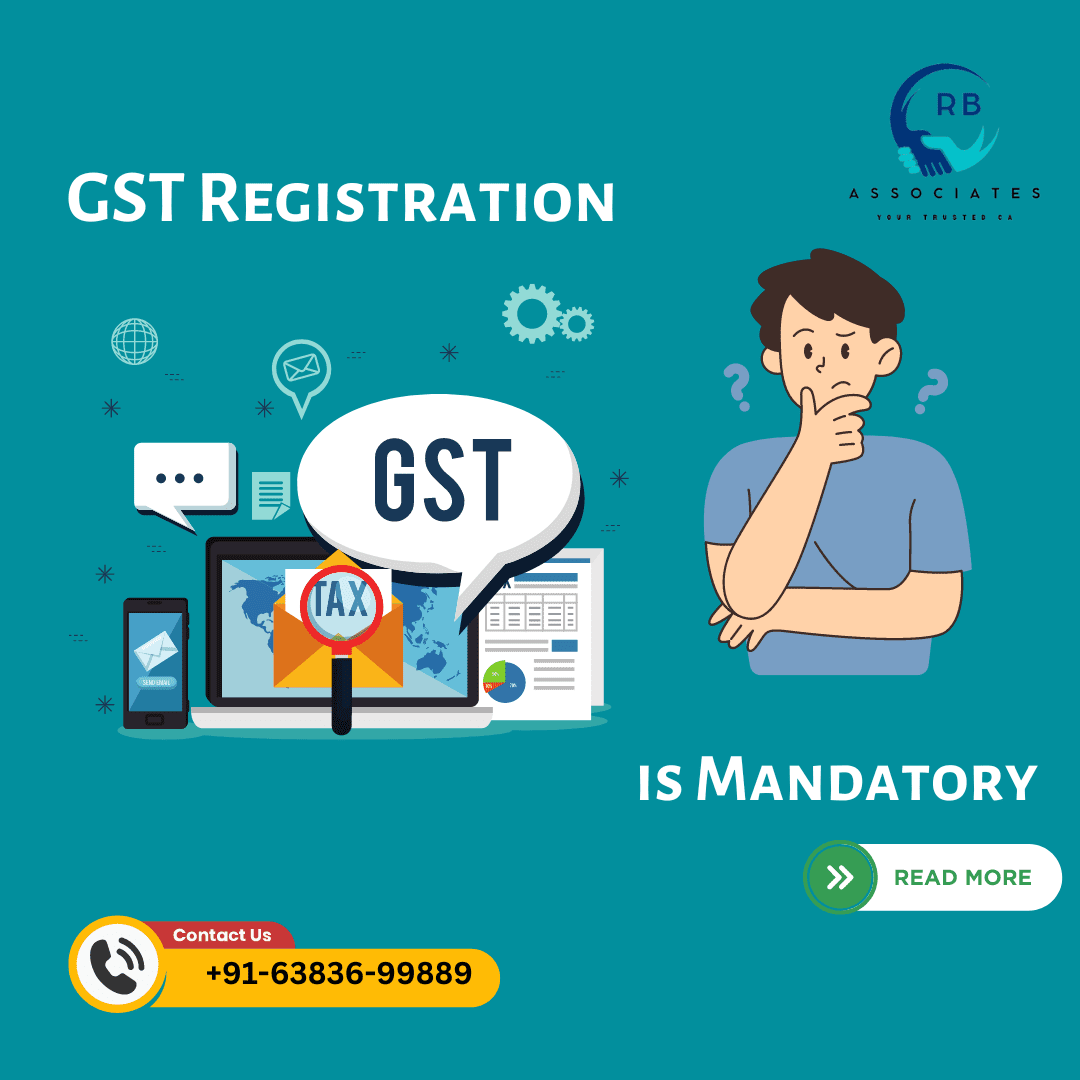The Goods and Services Tax (GST) has been a significant shift in India's indirect taxation system, impacting businesses and consumers a like. One of the critical aspects of GST is the mandatory registration for businesses that meet specific criteria. This blog post aims to provide a comprehensive understanding of the mandatory GST Registration process, its implications, and the conditions under which it becomes essential.
What is GST Registration ?
GST Registration is the process by which a taxpayer get registered under GST and obtains a unique registration number known as the GSTIN (Goods and Services Tax Identification Number). Once registered, the taxpayer is legally recognized as a supplier of goods or services and is obligated to collect GST on sales and claim input tax credit on purchases.
Who needs to Register for GST ?
Mandatory GST registration is based on two primary factors: turnover and the nature of the supply. As per the GST Act, every supplier whose aggregate turnover in a financial year exceeds INR 20 lakhs (INR 10 lakhs for special category states) is required to register for GST. However, for suppliers exclusively engaged in the supply of goods, the threshold is increased to INR 40 lakhs, except for certain specified cases

Categories of Mandatory for GST Registration.
1. Based on Turnover
Regular Suppliers: If the annual turnover exceeds INR 20 lakhs (INR 10 lakhs for special category states).
Suppliers of Goods: Exempt from registration if the turnover does not exceed INR 40 lakhs, with exceptions.
2. Irrespective of Turnover
Inter-State Suppliers: Any supplier making an inter-state supply must register, regardless of turnover.
Casual Taxable Persons: Those who occasionally undertake transactions involving the supply of goods or services.
Reverse Charge Mechanism: Suppliers required to pay tax under reverse charge.
E-commerce Operators: Those who supply goods or services through electronic commerce operators.
Non-Resident Taxable Persons: Suppliers who reside outside India but supply goods or services within India.
Agents and Input Service Distributors: Those who supply on behalf of other taxable persons or distribute input services.
Consequences of Not Registering for GST
Failing to register for GST when required can lead to penalties and legal actions. Unregistered businesses cannot collect GST from their customers, and they are ineligible to claim any input tax credit. This can put them at a competitive disadvantage and lead to compliance issuesConclusion
Mandatory GST registration is a critical compliance requirement for businesses in India. Understanding the thresholds and categories is essential for proper adherence to the tax laws. With the online registration process, the government has streamlined the procedure, making it more accessible for businesses to comply.
For detailed information on the conditions and exemptions related to GST registration, refer to the comprehensive guides provided by tax experts. Staying informed and compliant is crucial for the smooth operation of any business in the dynamic economic landscape of India.

